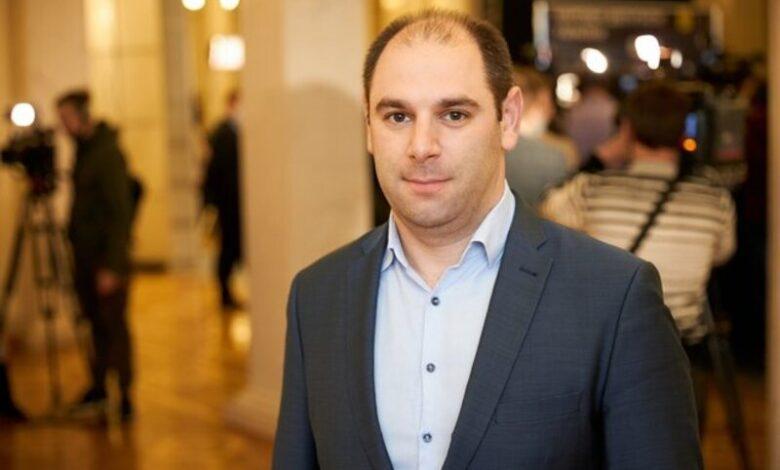Will it be possible to save machine-building exports: Dmytro Kysylevskyi on the NBU’s inaction

The Ukrainian economy is going through one of the most difficult tests in its history, and supporting exports is now critical for its sustainability. This is especially true of high-tech engineering, which provides the country with strategic foreign exchange earnings and creates products necessary for both defense and the restoration of destroyed infrastructure. However, instead of support, the industry is facing bureaucratic inhibitions that could cause it irreparable damage.
Why is the NBU delaying the adoption of a decision for the machine-building industry? Is it ordinary bureaucratic inertia, or is it a conscious economic strategy that prioritizes raw material exports, leaving Ukrainian production without the necessary support? There is still no answer to these questions, but the consequences of such an approach can be critical for Ukrainian industry and the economy in general.
Expert Dmytro Kysylevsky, deputy chairman of the Verkhovna Rada’s Committee on Economic Development, believes that the National Bank of Ukraine has been ignoring the Cabinet of Ministers’ recommendation to extend the terms of return of foreign exchange earnings for the export of machine-building products from 180 to 270 days for seven months. According to him, this decision refers to a limited number of goods, the nature of sales of which does not allow closing foreign trade agreements within the established 180-day period. However, the National Bank not only does not approve this change, but also does not provide any explanation for its rejection, effectively ignoring the government’s decision.
Kisylevsky emphasizes that such neglect does not only apply to mechanical engineering. Similarly, the NBU did not make a decision to extend the terms of return of foreign exchange earnings for the import of machine tools and other means of production. This happens against the background of war, when the enemy systematically destroys production facilities, including defense enterprises. The production of complex equipment to order, he said, usually takes more than half a year, which makes the 180-day return period of foreign exchange earnings extremely inconvenient and even harmful for enterprises.
At the same time, Kisylevsky draws attention to the fact that the government in the same resolution proposed to the National Bank to extend the terms of return of foreign exchange earnings for the export of agricultural raw materials. The NBU made this decision in three weeks. Thus, the expert emphasizes the selectivity of the regulator’s approaches: the export of raw materials receives support, but the support of high-tech production and the import of critical means of production is blocked. He calls it a “false economic policy implemented by the NBU”.
Against the background of these actions, Kisylevsky reminds that the negative balance of Ukraine’s foreign trade has already increased from 27.5 billion dollars in 2023 to 29.1 billion dollars in 2024. At the same time, he draws attention to the lack of communication from the National Bank: although the issue of foreign exchange earnings is critically important for Ukrainian business, the head of the NBU did not even appear at the annual Export Credit Forum in Kyiv, although his speech was scheduled in the program of the event.
The expert emphasizes that this is just one example of how the National Bank influences the real sector of the economy. Another key issue is access to financing, which remains one of the most pressing problems for Ukrainian manufacturers and exporters. He draws attention to the fact that in the new strategy of the NBU “Financial Fortress of Ukraine”, the regulator declares support for economic growth as one of the main goals. However, according to Kisylevsky, this document lacks real support for affordable lending for entrepreneurs.
He notes that the word “export” in the NBU strategy is mentioned only in the context of “export logistics”, although this is not the area of competence of the financial regulator. Even more indignant is the fact that the NBU actually considers preferential lending programs such as “5-7-9%” as a threat to the state budget.
Tens of thousands of Ukrainian entrepreneurs use the “5-7-9%” program, which allows small and medium-sized businesses to receive loans at a reduced rate.
However, due to the fact that the National Bank did not bring its regulations into line, banks began to send letters to entrepreneurs demanding to pay the full rate of interest, arguing that the state was delaying compensatory payments. At the end of 2023, the government decided to change the interest compensation period from six to nine months, but the NBU has not made the corresponding changes for more than a year, creating a legal conflict that commercial banks use.
Kysylevsky emphasizes that all these problems are not just bureaucratic nuances, but real threats to Ukrainian production, exports, and economic development. As a representative of the parliament, responsible for the policy of supporting production under the slogan “Made in Ukraine”, he constantly receives appeals from business regarding these issues, but sees that the National Bank continues to ignore them.
The expert calls on the regulator to finally start a dialogue with manufacturers and exporters, because the issues of foreign exchange earnings and accessible credit directly affect the economic stability of the country. In his opinion, macro-financial stability, which the NBU constantly talks about, is impossible without the development of the real sector of the economy, and if the regulator does not change its approach, this may lead to an even greater deterioration of the trade balance, a reduction in production and a loss of competitiveness of Ukraine on the international market.





